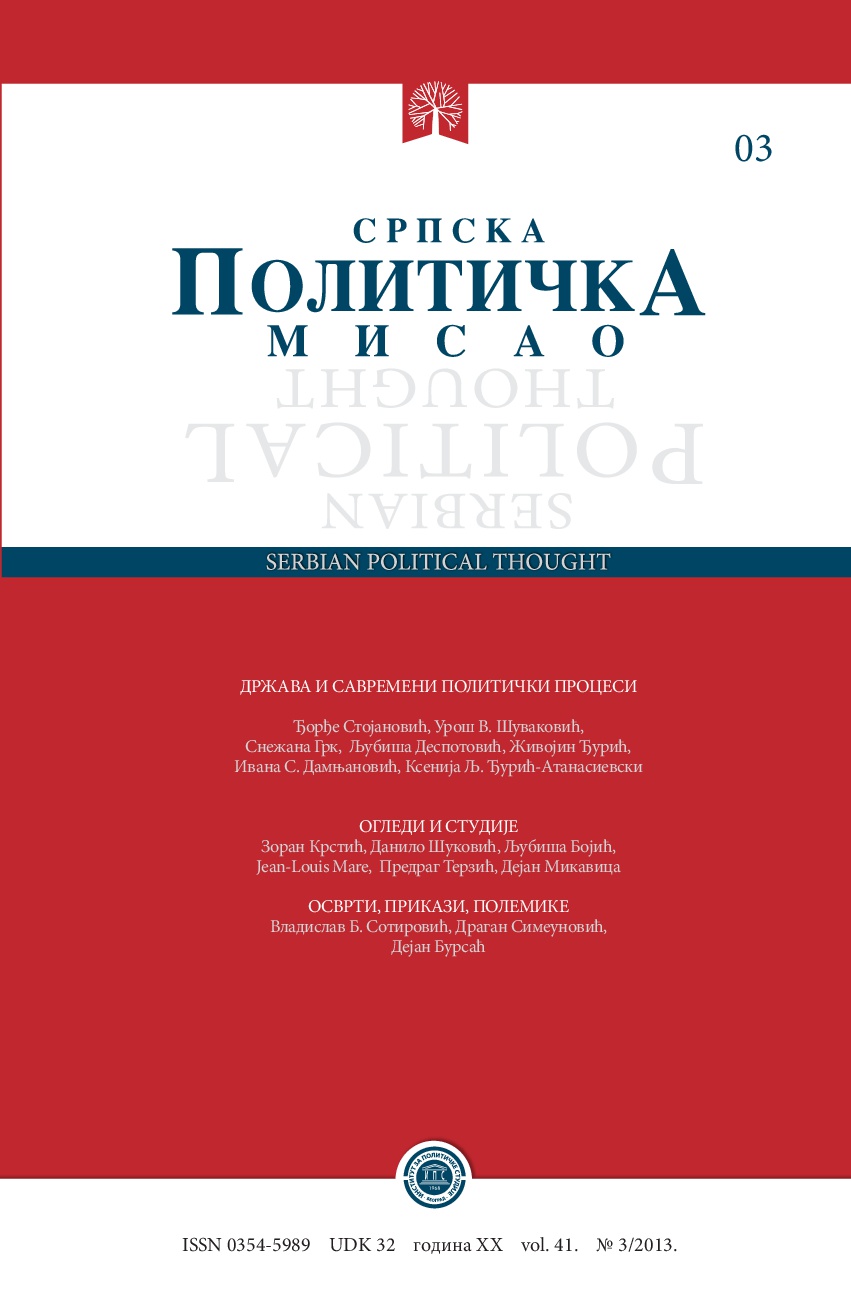Угрожавање капацитета безбедности националне државе због кризе њеног управљања
Threatening of National State’s Capacity as a Consequence of its Management Crysis
Author(s): Ljubiša Despotović, Živojin B. ĐurićSubject(s): Recent History (1900 till today), Economic policy, Government/Political systems, Management and complex organizations, Globalization
Published by: Институт за политичке студије
Keywords: national state; security; institution; globalization; management crisis;
Summary/Abstract: The basic essence of current global process is aimed at removal of the main institutional capacities of temporary national state. In this task the main analysis will be directed at process of decomposing and removal of security of national state’s capacity. Process of globalization became comprehensive and intensive to the extent, particularly during the last two decades and it hadn’t left aside almost any segment of our collective and individual existence. One of the most powerful sector of devastation and national state’s degradation affected its institutional sphere, calling into question radical legitimate basis of state itself, as well as its democratic capacities. Concept of temporary national state (constitutive and democratic state) had already been made in XIX century in order to experience a peak in the model of so- called „State of welfare“ in the second half of XX century. Model of contemporary state like this will be attacked and disputed in process of globalization and radical imposition of neoliberal economy organization’s concept and political state’s structure. Current trends of globalization have proved their strength, most in the process of denationalization, both economic- financial character and deterritorialization, seizing sovereignty of the state and blocking of its security sector. The process of deindustrialization and depopulation, and even the process of depersonalization of individuals will also join it in a significant segment. Ideology of globalism started from the attitude that the concept of traditional state is overcome and it should be replaced with new forms of transnational and regional association and structure, that opened a problem of so- called national state management crisis. In order to make some space for influence and action of international problems (terrorism, crime, climate changes, economic and financial crisis, etc). They encouraged process of removal and degradation of institutional capacity of national states which were brought into the position of incompetent, efficient action, but sometimes into total blockade. This concept aimed to achieve so- called delegitimization, both institutions (with removal of its organizational and functional capacities) and political elite at the national level (which wasn’t capable of responding to the needs and accumulated problems of citizens). On the one hand, political elite on the definite national level was loseing its electional legitimacy because it wasn’t in a position to fulfil electional promises, thanks to devastated institutional capacity of state. On the other hand, law standards weren’t achieved and they were still binding volume of its acting. It was a period of fast decomposing of legitimate basis of political power and creating needs for worldwide power order. Once it was standardly good institutional framework of a state. In the first step it collapsed with financial and economic crisis and also with process of accelarated industrialization. The second step considered an opened crisis the efficient management at the national level. National state became so ruinous community that it wasn’t capable of fulfilling citizens’ basic needs, not only including their security (inner and outer aspect of security). Institutional blockade and inefficiency were usually solved with requests of transnational structures, which they were looking for to take responsibility of one part of the state sovereignty and to take the initiative how to solve incurred problem. The difference in practicing methods such as these ones depended mostly on the objective areas-regions and state of derangement of state itself.
Journal: Српска политичка мисао
- Issue Year: 2013
- Issue No: 3
- Page Range: 101-112
- Page Count: 12
- Language: Serbian

